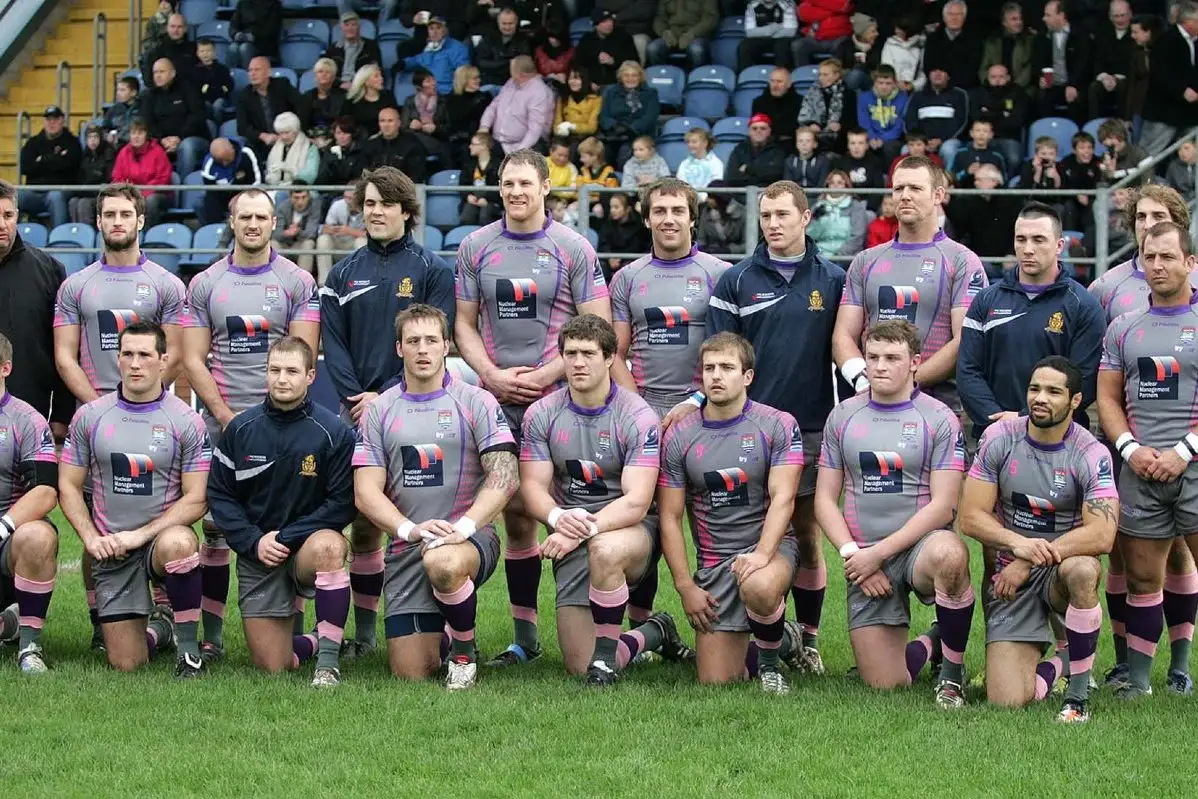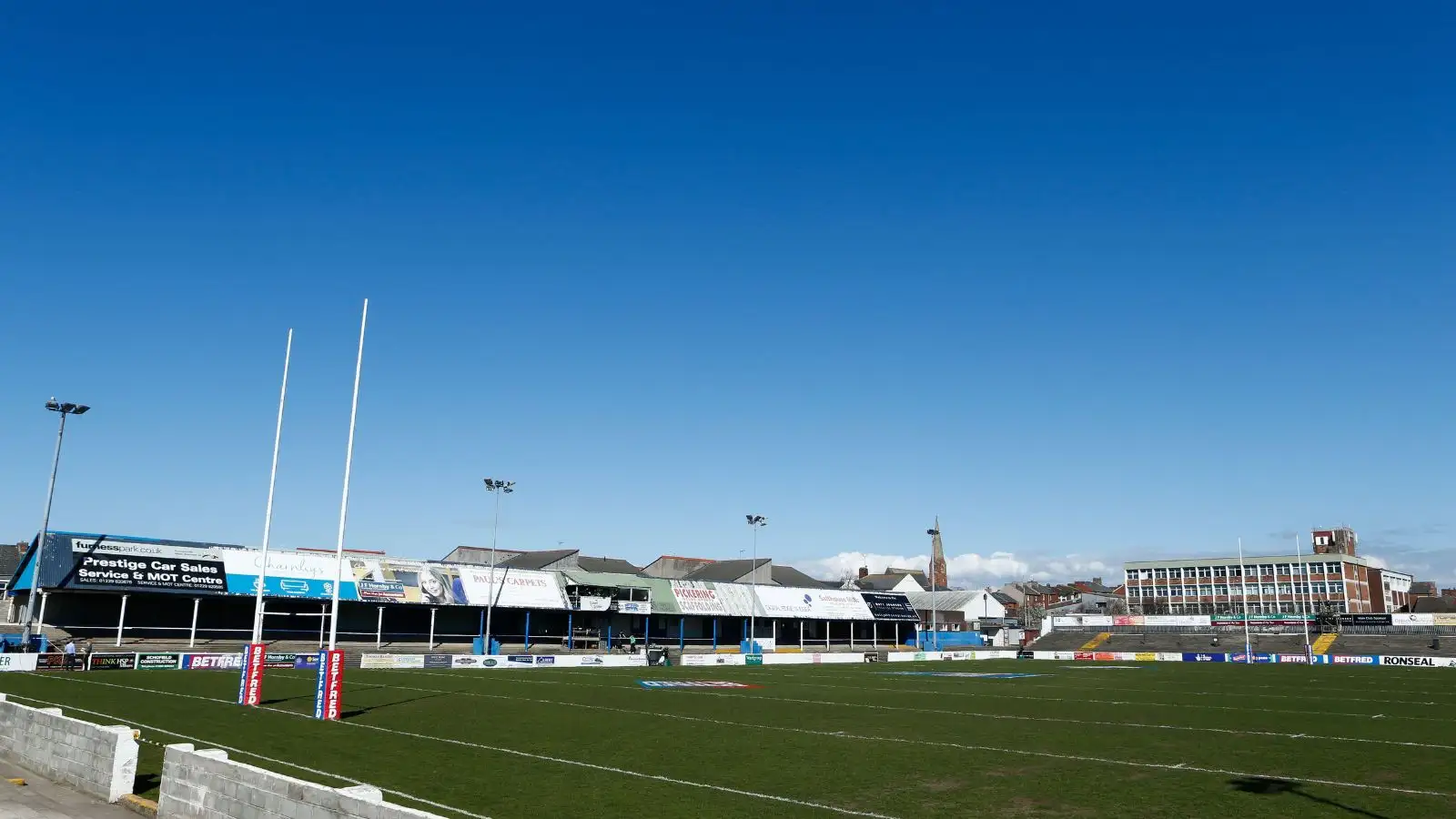All I want for Christmas is a Cumbrian Super League team!

It’s an issue that’s never too far away when it comes to discussion of the make-up of Super League – and like many other Cumbrians, Shaun Lunt wants to see them represented in the elite competition.
It’s almost 25 long years since Workington kicked off in the first ever season of Super League, only to be relegated at the end of its maiden year.
Whitehaven got within extra time of promotion back in 2004, but that aside, the two west Cumbrian sides have been bouncing back between the second and third tiers virtually ever since, which in itself suggests that maybe the interest, as well as resources and geography, isn’t quite there..
But if rugby league can’t attract even local investors in an area with the grassroots foundation, then it raises questions on how it can be expected to grow in other areas.
Lunt said: “The last 10 years in Super League, we’ve tried teams from here, there and everywhere. If we’re trying to get back to the foundations, and be strong, then Cumbria is a heartland as well as the ‘M62’.
“There are a lot of players who have come through, many have played for England, and a lot of us would want to represent Cumbria in Super League.
“We’ve missed the boat with some of us retiring now, but it could be unbelievable. If we went to a franchise system and got three years to build. We’re expecting overnight success with these expansion teams and it doesn’t come. Nothing sustained has come overnight – patience and hard work is what we need for our sport.”
It’s true that the biggest obstacle in the way of taking Super League to Cumbria is the lack of a modern stadium.
Plans to develop stadia for Whitehaven and Workington as individual clubs have floundered, with both having squandered the opportunity to host World Cup games at prospective new grounds in 2013 and 2021.
READ: No World Cup matches to be held in Cumbria after stadium plans left in chaos
Workington’s Derwent Park at least filled the void left by their local rivals to welcome Scotland for a couple of group games in 2013, and under ex-Whitehaven boss Steve McCormack, Scotland virtually adopted the ground as their natural home.
Efforts to drum up support for a tilt at Super League have perhaps mellowed opposition to a club merger, which has been on the table in the past – most recently in 2014 – and thrown out.
The solution, perhaps, is to create a new franchise that enables the two historical clubs to keep their own identities underneath.
Lunt said: “I’d create a Super League club but keep Whitehaven and Workington, use them as feeder clubs, and create a conveyor belt of talent.
“You have a 30-man Super League side and if players don’t get in, they play at Whitehaven and Workington, and represent their county instead of say going on dual-registration at Wigan.
“It keeps rugby inside Cumbria. There should be more teams in Super League. The loop fixtures are a farce. Just play each other home and away and play in the Challenge Cup.
“Rugby league tries to reinvent the wheel too often when it’s already been invented, it just needs to persevere.”
Finding an investor or consortium to bring it all together is lacking too, and there was even talk of former Salford owner Dr Marwan Koukash launching a new franchise, but former Toronto prop Brad Singleton said “it’s one of the safest expansions Super League could do” in a social media discussion on the subject recently.
And it’s a discussion that keeps cropping up – even in the shadows of Super League champions St Helens.
FROM 2014: Time for Cumbria to make Super League dream possible
A representative team played against Scotland in 2016, having previously played against England, England Knights, USA and Tonga from 2006 to 2011.
They also won the ill-fated Rugby League 9s competition around that time too.
Cumbria also boasts the current National Conference League champions in Wath Brow Hornets, as well as the world’s oldest amateur rugby league team – Millom, who famously took on Red Star Belgrade in the Challenge Cup a couple of seasons ago.
What a cracking morning here at Wath Brow Hornets.
Stay Safe Everyone and it won't be long until Rugby League is back! pic.twitter.com/bFEHJIrksd— Wath Brow Hornets (@WathBrowHornets) April 19, 2020
But without a real pathway to becoming a full-time rugby league professional, many have chosen to stay playing amateur and even rejecting the advances of the semi-professional clubs, who face an increasing amount of travelling in the Championship and League 1, which takes its toll on players with tough day jobs.
Lunt, who started his career at Workington, moved on to Huddersfield and Leeds, where he won a Super League title. The likes of Kyle Amor, James Donaldson and Gregg McNally have also forged successful careers outside the county.
He added: “Lots of lads at Sellafield make a good living. There were a lot of better players than me coming through, and it was only because my dad drove me around everywhere playing that got me through.
“Players in Yorkshire and Lancashire develop a lot earlier. I remember playing against Drighlington at 15/16 and even though they battered us 50-0, it showed the level we needed to be at.
“It hurts me to see no full-time professional club – we’re missing out on something really special.”
For now at least, it seems that the individual Cumbrian clubs will have to do what they can to get promotion on the field themselves – with Workington coach Chris Thorman saying:
“One day a Cumbrian team in Super League has to be the goal.”



